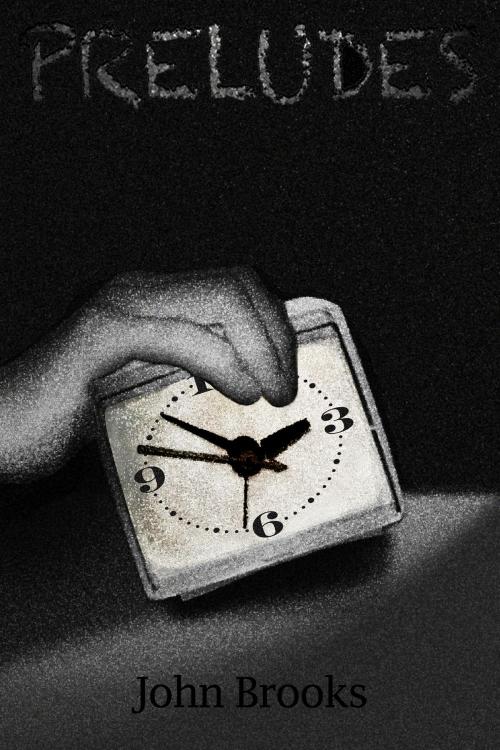Preludes: A Story of Child Sexual Abuse from a Child's Perspective in a Middle Class American Family
Fiction & Literature, Psychological, Literary| Author: | John Brooks | ISBN: | 9781311560483 |
| Publisher: | John Brooks | Publication: | February 7, 2014 |
| Imprint: | Smashwords Edition | Language: | English |
| Author: | John Brooks |
| ISBN: | 9781311560483 |
| Publisher: | John Brooks |
| Publication: | February 7, 2014 |
| Imprint: | Smashwords Edition |
| Language: | English |
When a nine-year-old boy in a "respectable," middle class family is raped, then repeatedly molested by his father, how does the boy experience the abuse and how does he manage to survive?
“Preludes” examines these questions.
The boy wakes in the middle of the night to find his father sitting on the edge of his bed, gently shaking him from his sleep. Though confused by his father's unexpected presence, for a few brief moments he suspects nothing unusual.
His father then accuses him of having misbehaved without saying how, and tells him he'll have to be punished. The boy initially protests, but then, sensing the futility of resistance, grudgingly prepares himself for what his father tells him will be a spanking, all the while thinking, "Gee, this is ridiculous—I haven't done anything wrong." His father then proceeds to rape him, and, the rape completed, threatens to murder him if he tells anyone, including his mother.
Thus begins the boy's struggle for survival in the face of his father's nightly onslaughts—a struggle that stretches the boy's physical, psychological, and emotional resources to their limits and beyond.
Adding to his struggle's immensity is the story’s milieu: a "Pleasantville" middle class neighborhood in a mid-sized American city in the early 1960s—an environment that gives no indication, on its surface, that dysfunction of such proportions could occur within its hermetic confines. The boy's family enjoys a high status—the father is a professor at a prestigious university, and the family belongs to a Presbyterian church that counts among its members some of the city's most prominent citizens. It is an environment in which acknowledgement of even the merest possibility of child sexual abuse within a family as respectable as that of the boy's is as taboo as the abuse itself. Sensing these constrictions, the boy feels his isolation in his suffering increase exponentially.
The prime importance placed by the community on maintaining a semblance of normalcy, no matter the cost to the truth, extends to the day-to-day life of the boy's home. The family's nightly meals together, at a table set with engraved silverware and an "everyday" china of the most tasteful design, and the "Smile Club" photos the boy's mother hangs in the downstairs hallway—family photos, taken regularly, for which the fundamental requisite is that everyone in them be wearing a pleasant smile—help form the bulwark of the mother's determined effort to put the best possible face on things.
To survive, the boy attempts to hide the truth as much as possible, even from himself, with his mind employing, as its chief means to this end, a total forgetting of the abuse when it's not actually happening—a strategy his mind has utilized on previous occasions of his father's abuse.
But survival, though laudable, comes at an enormous price—a price exacted, among other ways, in the warped perception the boy forms of what it means to "be a man." A price, the story suggests, the boy will have to pay going forward, into adulthood, until he reaches a point of substantial healing.
When a nine-year-old boy in a "respectable," middle class family is raped, then repeatedly molested by his father, how does the boy experience the abuse and how does he manage to survive?
“Preludes” examines these questions.
The boy wakes in the middle of the night to find his father sitting on the edge of his bed, gently shaking him from his sleep. Though confused by his father's unexpected presence, for a few brief moments he suspects nothing unusual.
His father then accuses him of having misbehaved without saying how, and tells him he'll have to be punished. The boy initially protests, but then, sensing the futility of resistance, grudgingly prepares himself for what his father tells him will be a spanking, all the while thinking, "Gee, this is ridiculous—I haven't done anything wrong." His father then proceeds to rape him, and, the rape completed, threatens to murder him if he tells anyone, including his mother.
Thus begins the boy's struggle for survival in the face of his father's nightly onslaughts—a struggle that stretches the boy's physical, psychological, and emotional resources to their limits and beyond.
Adding to his struggle's immensity is the story’s milieu: a "Pleasantville" middle class neighborhood in a mid-sized American city in the early 1960s—an environment that gives no indication, on its surface, that dysfunction of such proportions could occur within its hermetic confines. The boy's family enjoys a high status—the father is a professor at a prestigious university, and the family belongs to a Presbyterian church that counts among its members some of the city's most prominent citizens. It is an environment in which acknowledgement of even the merest possibility of child sexual abuse within a family as respectable as that of the boy's is as taboo as the abuse itself. Sensing these constrictions, the boy feels his isolation in his suffering increase exponentially.
The prime importance placed by the community on maintaining a semblance of normalcy, no matter the cost to the truth, extends to the day-to-day life of the boy's home. The family's nightly meals together, at a table set with engraved silverware and an "everyday" china of the most tasteful design, and the "Smile Club" photos the boy's mother hangs in the downstairs hallway—family photos, taken regularly, for which the fundamental requisite is that everyone in them be wearing a pleasant smile—help form the bulwark of the mother's determined effort to put the best possible face on things.
To survive, the boy attempts to hide the truth as much as possible, even from himself, with his mind employing, as its chief means to this end, a total forgetting of the abuse when it's not actually happening—a strategy his mind has utilized on previous occasions of his father's abuse.
But survival, though laudable, comes at an enormous price—a price exacted, among other ways, in the warped perception the boy forms of what it means to "be a man." A price, the story suggests, the boy will have to pay going forward, into adulthood, until he reaches a point of substantial healing.















